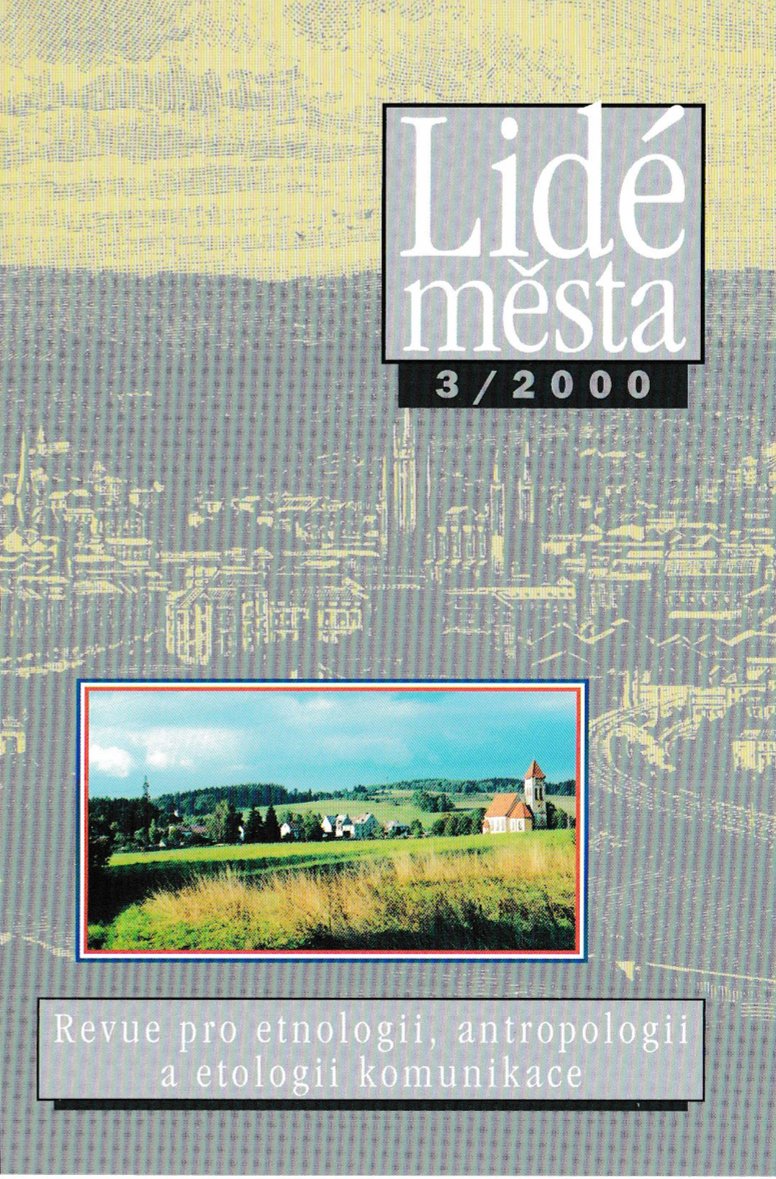Funkce tradice u romské elity v Praze
Proměna vztahu ke smrti a umírání
DOI:
https://doi.org/10.14712/12128112.4056Abstrakt
My work focuses on the current Romany elite living or working in Prague, the capital of the Czech Republic. This actually means that part of the Romany community which leads the processes of innovation and emancipation. The Romany elite is the most progressive part of the Romany community and as such it displays the trends of further development of the Romany community. Hence my decision to examine how the elite is being transformed in its views, how it is modernized, how it lies in the roots of its ethnicity, its own tradition, its own community and what polarization occurs within this modernization. As a sign of this process the most traditional topic was selected-death and funeral of man. There was a deliberate choice of the stage of life which has an enormous importance for Rornanies, which differs frorn that typical of Czech society. The survey involved an attempt at examining, defining and ascertaining the current observation of family habits and rituals at the death of man in a clearly defined ("elite") part of the Romany community which lives or at least works in Prague. There was a focus on the current state of traditions-how they are observed by the present-day Romany elite. The following questions were primarily asked-what role is played by traditions and ceremonies connected with death and funeral in the Roman elite, which is centering on the questions of career, professional ascent and opportunities for economic well-being. The work focused on examining the relationship of the Romany elite with death. Questions were asked about belief in posthumous life, the questions about binding na ture of traditions linked with death among the current Roman elite and its transformations in the attitudes of three generations. The shift in the tradition was vital for the research. Innovations in individual traditions and adoption of specific cultural elements and patterns from the majority ethnicity prove the importance of the change in the attitude. The work was based on field research. It was conducted with the method of nonstandardized repeated interviews and long-standing observations made possible thanks to my job of a reporter of the Romany broadcast of Czech Radio. I could study all types of situations every day. I asked the question during spontaneous interviews-however, the questions were prepared and targeted. The interviews were conducted repeatedly with most respondents, which certainly required more time, but the result was better-in the course of time I learnt the information which the respondents would not have disclosed without a closer contact. The survey was conducted between May 1 998 and April 1999. It includes information from 85 respondents with whom a regular contact was maintained. The respondents were urban Romanies, living or at least working in Prague. They were mostly young or from the younger, middle-aged generation. The following conclusions were drawn from my survey: in its attitude to death, customary and ritual traditions linked with death and burial of man the current Romany elite is still deeply anchored in traditional Romany values. Understandably, here, too, there have been some shifts caused by the attained education, adoption of European tradition, the advanced of Romanies' social and economic level, and in some sphere even as a result of a continual combination of cultural patterns of the majority society. The attitude and respect to the dead reveals that the Romany elite still insists on the Romany values, but pushes the importance of some superstitious acts to the socially binding sphere and abandons a number of them. On the one band, the Romany elite has triggered a process of emancipation toward modernization and abandonment of traditional ideas, habits and rituals, but on the other it is building its own traditions and its own identity. However, the elite's attitude to the abandonment is not in the foreground of the Romany tradition. A binding customary tradition is becoming a social convention.
Stahování
Publikováno
Jak citovat
Číslo
Sekce
Licence

Tato práce je licencována pod Mezinárodní licencí Creative Commons Attribution-NonCommercial-NoDerivatives 4.0.


